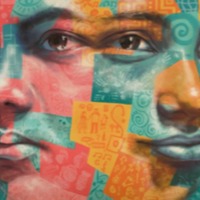
Saw Law Eh
There are an estimated 610,000 people living in conditions of modern slavery in Thailand (GSI 2018). Thailand is a source, destination, and transit country for men, women, and children subjected to forced labour and sex trafficking. Labour trafficking victims are exploited in commercial fishing and related industries, the poultry industry, manufacturing, agriculture, and domestic work, or forced into street begging. Men, women and children are victims of human trafficking for forced labour in the Thai fishing industry, subjected to physical abuse, excessive and inhumane working hours, sleep and food deprivation, forced use of methamphetamines and long trips at sea confined to the vessel. Due to the fishing industry relying on trans-shipments at sea to reduce expenditure, some find themselves trapped on long-haul trawlers for years at a time. This makes the monitoring of enslaves labour on fishing vessels costly and difficult. Saw Law Eh is one of an estimated 150,000 people who have fled Burma’s civil war and now live in one of nine camps along the Thai border.
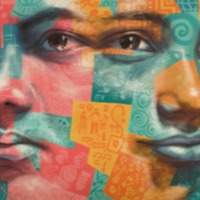
David Ninteretse
In 1993, Burundi’s first democratically elected president was assassinated in a coup d’état. Melchior Ndadaye, of the majority Hutu ethnic group, had sought during his three months in office to ease tensions between Hutu and the minority Tutsi, which had ruled Burundi for decades and continued to dominate the army. In response, Hutu paramilitary groups formed, and as quid pro quo attacks between Hutu and Tutsi escalated, Burundi spiraled into civil war.Among the many victims of the war were children. Indignant over Ndadaye’s death and the denial of political power the Hutu believed their due, extremist factions exhorted teenagers and even younger children to join their ranks, and for more than a decade, thousands of children lived in Burundi’s forests in deplorable conditions, raiding villages, camps, and military installations, both suffering and committing horrific violence. Many were girls kept as sexual slaves for older soldiers David became involved in the Burundi Democratic Youth when he was 15 years old. After the coup in 1993, he became a Hutu child soldier, David tells of the hunger and abuse he faced as a child soldier as he was forced to walk barefoot for days with little food and water. David tells of his experience as a child soldier, his attempts to gain an education to become a political leader, and his retirement.
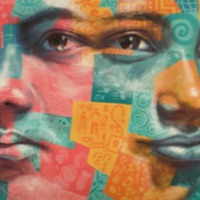
Khawng Shawng
The Global Slavery Index 2018 estimates that on any given day in 2016 there were over 3.8 million people living in conditions of modern slavery in China. Women and girls from South Asia, Southeast Asia and Africa are trafficked in to forced marriage in the country for fees of up to £30,000. The gender imbalance caused by the One Child Policy and the cultural preference for male children, has caused a shortage of women which has led to the trafficking of women to be sold as brides. As a result many women find themselves either deceived by promises of employment, sold or abducted and forced into marrying Chinese men who have paid for them. Khawng Shawng and her husband decided one of them would have to go to China whole the other stayed behind to keep their space in the IDP camp. In 2011, when a Chinese couple came to the camp saying they needed a female cook for their construction company and promising wages of 1500 yuan a month ($240), Khawng Shawng packed her things and left with them within two hours. They sold her for 20,000 yuan ($3,200).Khawng Shawng was kept locked in a room for the first 10 days while the man who had bought her worked on the family’s coffee plantation. After 4 months of being held in a locked room and repeatedly raped, Khawng Shawng escaped back to Myanmar and her husband.
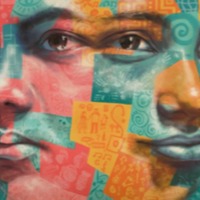
Htoi Moon Ja
The Global Slavery Index 2018 estimates that on any given day in 2016 there were over 3.8 million people living in conditions of modern slavery in China. Women and girls from South Asia, Southeast Asia and Africa are trafficked in to forced marriage in the country for fees of up to £30,000. The gender imbalance caused by the One Child Policy and the cultural preference for male children, has caused a shortage of women which has led to the trafficking of women to be sold as brides. As a result many women find themselves either deceived by promises of employment, sold or abducted and forced into marrying Chinese men who have paid for them. Htoi Moon Ja and her family were displaced in 2011. She was 16 when family friends invited her to vacation in China with them. She agreed, fighting was occurring in her village, her mother had died and she and two siblings were staying with their teacher. However, upon arrival, she learned that the couple she travelled with had sold her and she was forced to marry a Chinese man. When she was able to escape, she ran to the Chinese police, they helped her return home but were unable to catch her traffickers.
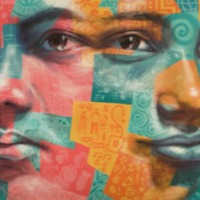
Seng Ja Ngai
The Global Slavery Index 2018 estimates that on any given day in 2016 there were over 3.8 million people living in conditions of modern slavery in China. Women and girls from South Asia, Southeast Asia and Africa are trafficked in to forced marriage in the country for fees of up to £30,000. The gender imbalance caused by the One Child Policy and the cultural preference for male children, has caused a shortage of women which has led to the trafficking of women to be sold as brides. As a result many women find themselves either deceived by promises of employment, sold or abducted and forced into marrying Chinese men who have paid for them. Seng Ja Ngai, in 2014 at the age of 35, after being displaced from her village and forced to stay in an IDP camp where she could not earn enough money to support her five children, Seng Ja Ngai accepted an offer of work in China from a friend. However, upon arrival she was sold and forced to marry a Chinese man and was held in China for a year. After she escaped, she returned to the IDP camp.
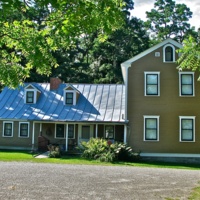
Rokeby Museum
The Rokeby Museum presents a 'nationally significant Underground Railroad story tucked inside a quintessential Vermont experience.' The museum was established in 1961, and covers 100 acres, with ten historic buildings. Originally a prosperous merino wool farm, Rokeby was owned by the Robinson family during the nineteenth and twentieth centuries. The family were abolitionists, and provided a safe haven for fugitive slaves from the American South.
The Underground Railroad Education Centre which marks the entrance to the museum houses the sites permanent museum exhibitions. 'Free & Safe: The Underground Railroad in Vermont' tells the stories of Jesse and Simon; two fugitive slaves who found shelter at Rokeby during the 1830s. Using a range of historic documents and artefacts the exhibition traces their journey from slavery to freedom. It also introduces the Robinson family and their support of the American abolition movement. The use of audio and film, recreating some of the voices of the exhibition's main characters, brings the history to life for visitors.
The rest of the museum is made up of historic buildings, including the main farmhouse, that have been restored and refurnished in order to provide visitors with a glimpse as to what life would have been like on the farm when Jesse and Simon were there. It is thought that both would have spent a significant length of time working on the farm before moving on towards Canada.
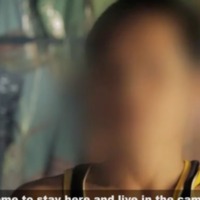
Saw Pol Lu
The UN has estimated that the number of refugees, asylum seekers and internally displaced people around the world has topped 65 million. Many of these people live in refugee camps across the globe. In Myanmar (Burma), thousands of people have fled civil war and found themselves confined to refugee camps in Thailand where they are vulnerable to human trafficking. In an attempt to provide for their families, refugees are lured for employment in Thailand and Malaysia then sold to employers as forced labourers. Saw Pol Lu fled Myanmar (Burma) to escape the civil wars and now lives in Mae La refugee camp along the Thai boarder. Here the widespread corruption and failed Thai policy led Saw Pol Lu, along with thousands of other refugees, in to the hands of human traffickers. Saw Pol Lu tells of the conditions and dangers faced by Burmese refugees in Thailand.